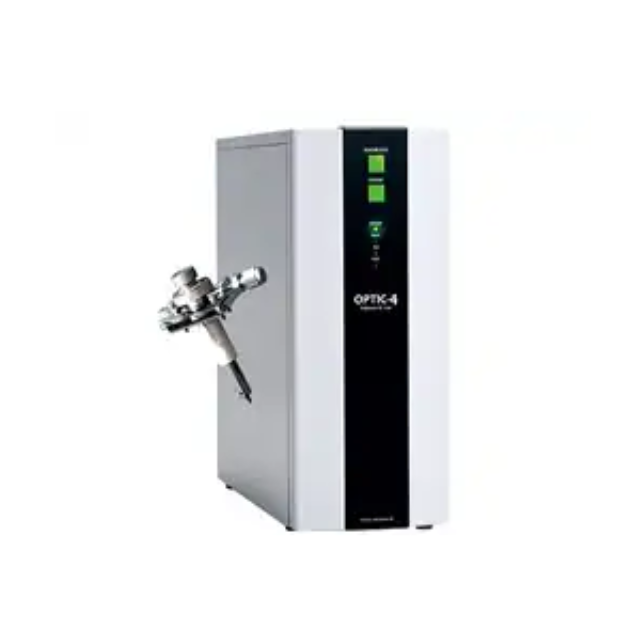
OPTIC-4
Excellent Basic Performance of the OPTIC-4
A Diversity of Injection Modes Is Available
In addition to split/splitless injection modes, the following modes can all be achieved with a single inlet.
・ Large quantity injection mode
・ Inlet derivatization mode
・ Thermal desorption mode
・ Thermal extraction mode
・ Thermal decomposition mode
・ DMI (Difficult Matrix Introduction) mode
Product Description
Excellent Basic Performance of the OPTIC-4
A Diversity of Injection Modes Is Available
In addition to split/splitless injection modes, the following modes can all be achieved with a single inlet.
・ Large quantity injection mode
・ Inlet derivatization mode
・ Thermal desorption mode
・ Thermal extraction mode
・ Thermal decomposition mode
・ DMI (Difficult Matrix Introduction) mode
Technical specifications
Capable of High-Speed 60 °C/sec Heating

By adopting a direct heating method, the OPTIC-4 achieves a maximum heating speed of °C/sec. As a result, chromatogram peak spread in thermal decomposition analysis is suppressed to a minimum.(Patent:US8180203)
Ideal Flow Channels

The OPTIC-4 does not use switching valves or transfer lines. Because of this, compound adsorption due to cold spots can be minimized. This is optimal for the analysis of compounds with a high boiling point, as well as adsorptive and degradable compounds.
DMI (Difficult Matrix Introduction) Mode Simplifies Pretreatment
DMI Mode

Liner and microvialL

Liquid or solid samples are placed in the microvial.

The microvial containing the sample is placed in the liner.

The liner is inserted in the inlet. (Automatic liner replacement is possible as an option.)

The liner is heated, and volatile and semivolatile compounds are introduced to the separation column. Nonvolatile compounds remain in the microvial.